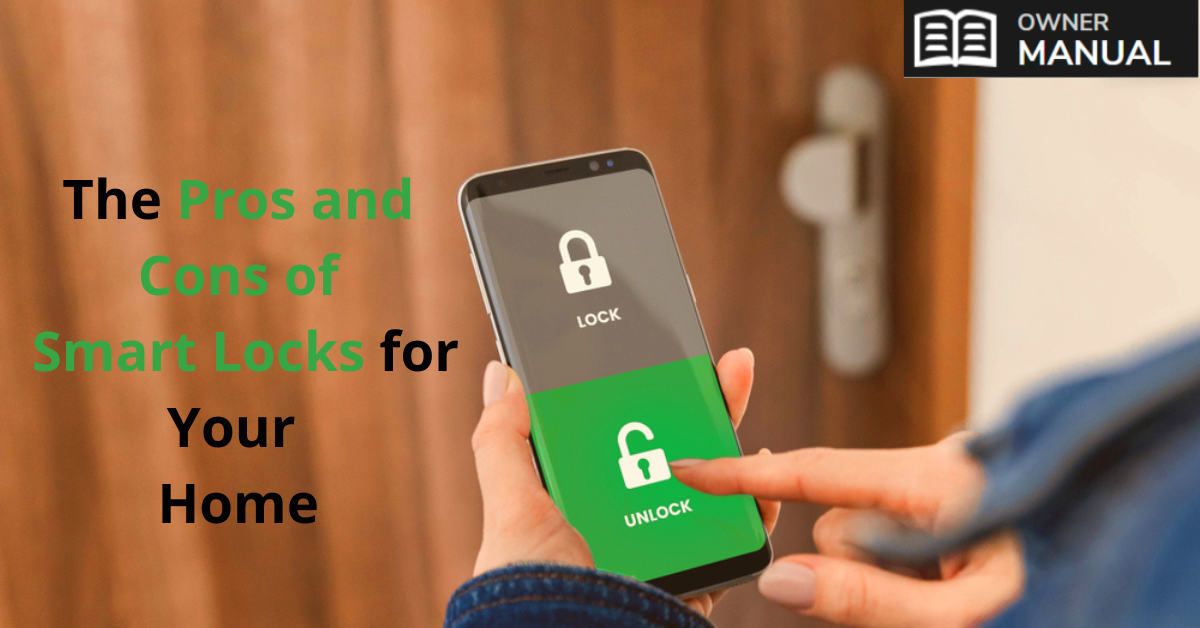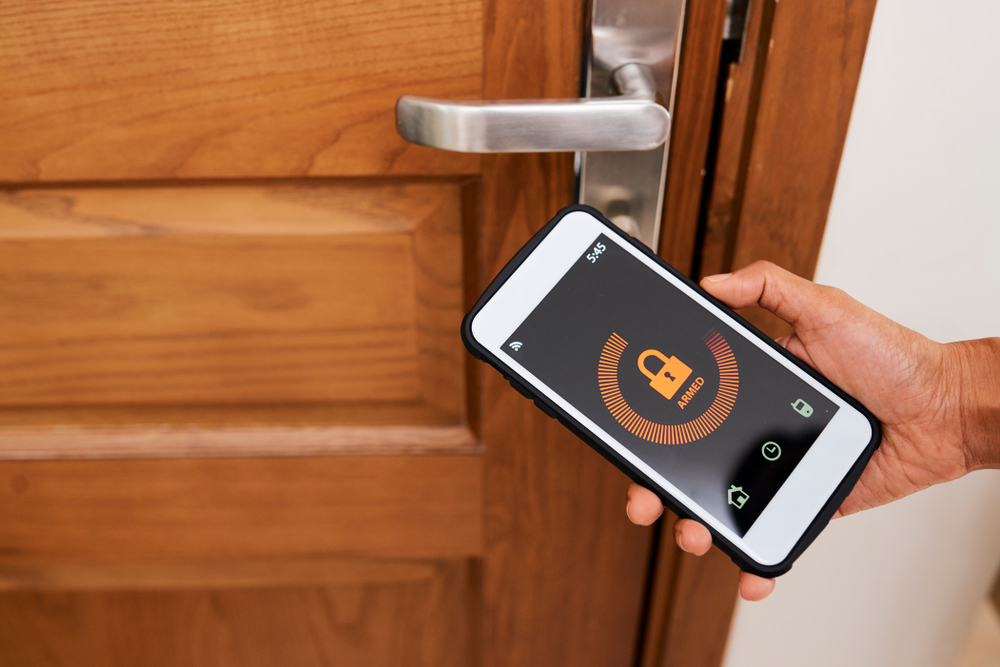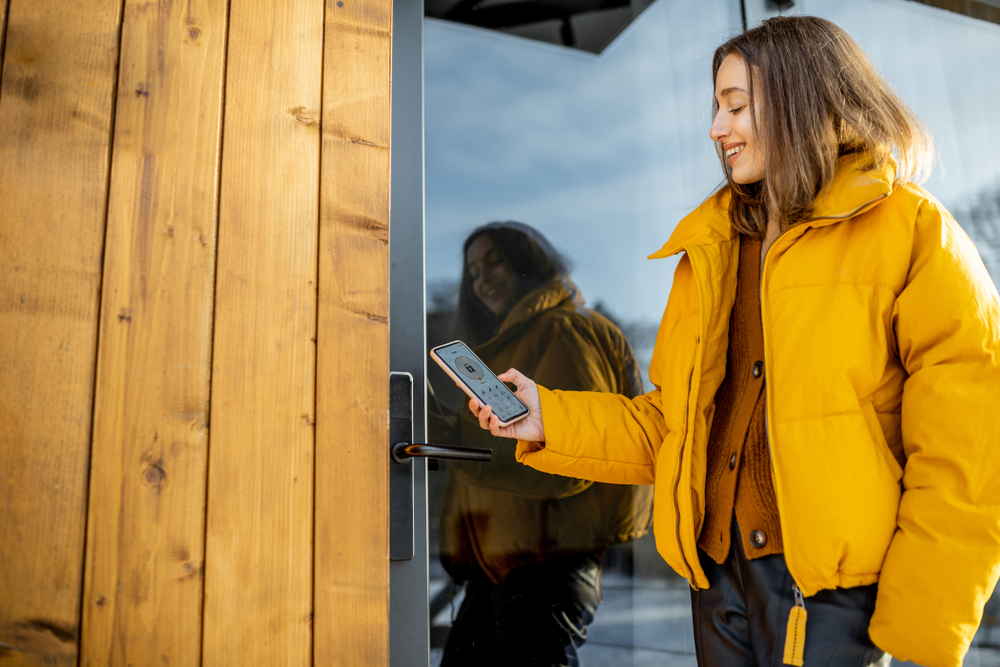The Pros and Cons of Smart Locks for Your Home

We live in an age of technology that has evolved significantly over the years. Hence, our recent tech culture has developed a “smart” version of everything. You can integrate it into almost every aspect of life. This technological wave has caught on in several industries and has even made its way into the locksmith industry. In this blog, you will learn more about the pros and cons of smart locks.
Not so long ago, people only knew the sturdy shaped locks attached to the doors. But, with technological advancement, many locking options are now available to you. Thus, it is advisable to learn about the pros and cons of smart locks to secure your home and property.
Table of Contents
What is Smart Lock?
A smart lock is a Bluetooth-enabled or Wi-Fi smart home device that allows users to leave their house keys behind and lock and unlock doors with a fingerprint or a simple voice command. Smart locks enable remote access, so you can unlock a door to let a guest in while you are at work.
Pros and Cons of Smart Locks: The Pros
Simple input
With a smart lock, you don’t have to search for your keys or wiggle the key in the lock to open it.
Convenience
If you are expecting guests or a home sitter to drop by while you are away from home, you can enter specific codes for each individual or group along with an expiry time for each code. Additionally, if you’re concerned that someone with a key (such as a previous owner) might try to enter your house, you can change the code, saving you the hassle and expense of replacing the lock.
Peace of mind
Another advantage of codes is that you can track who is coming, so you know if and when your kid has arrived home, for example. Moreover, many smart locks let you see if the door is locked or unlocked from your smartphone so that you can check the status worldwide.
Protection against lock picking
Traditional locks can be subject to lock bumping or lock picking – methods thieves can use to try and pick locks without the original key. Some smart locks do not have a key slot, eliminating the risk of such a break-in. But that doesn’t necessarily make smart or electric locks more secure.
Connectivity with your home
If you have different smart home devices, you might be able to connect them so that, for example, your smart lights turn on when you open the door.
Pros and Cons of Smart Locks: The Cons
Reliance on networks and smartphones

Smart locks communicate with your smartphones, usually via Wi-Fi or Bluetooth. If your mobile gets stolen, you lose it, or it dies. You could get locked out if you do not have a backup plan (e.g., log into your account on a different device). Also, if a power outage turns off Wi-Fi, you won’t be able to use features (such as remote unlock) that rely on a Wi-Fi connection.
Potential for Hacking
While some smart locks eliminate the threat of lock picking, hackers can attempt to override the passcode that may unlock the door. Conversely, the system can potentially alert you and the cops if an unauthorized user is accessing the system.
Batteries
Unlike old school locks, smart locks are battery-powered systems, and batteries can die. You have to be careful and change the battery before it dies.
Costs
Smart locks cost significantly more than traditional lock-and-key systems, and you may need a professional to install and sync the lock to your Wi-Fi and Bluetooth. Smart locks can also be expensive to fix if they don’t work.
Types of Smart locks
The best smart locks for your house depending on the property type you own and the individual who requires access to it. Listed below are three types of smart locks available in the market.

Electronic Keypad Locks
This lock type requires you to enter your access code into a touch screen or a keypad.
Biometric locks
This lock type is one of the most durable and secure as the biometric scanner recognizes and identifies your fingerprint or retina before unlocking the door.
Wireless locks
This lock type lets you control your security system using Bluetooth or Wi-Fi technology. With Bluetooth, you must be within a certain distance to unlock your door. But with Wi-Fi, you can open your door from all over the world!
Conclusion:
With digital locks, the advantages outweigh the disadvantages. Although more expensive, digital locks add value to your house. It’s also true that digital locks, while not entirely foolproof, are very secure. Choosing the right lock for your home is no easy task, but when you know the pros and cons of smart locks available to you, the task becomes less complicated. The goal is to use the information provided to make an educated decision and help you choose which lock is right for your needs.
Read more blogs at “OwnerManual“.